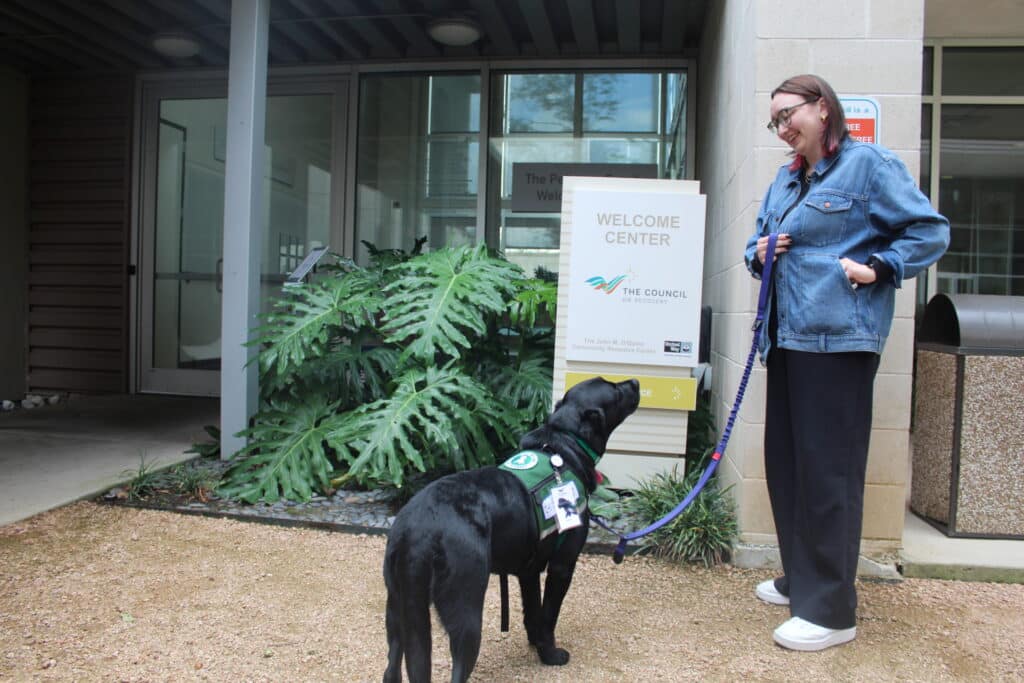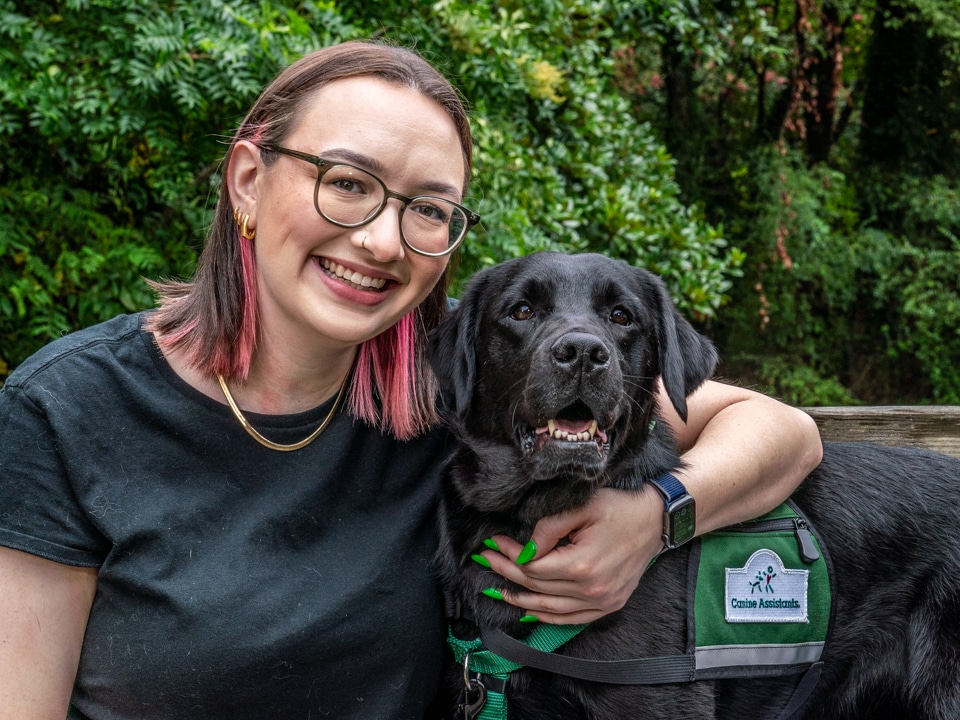
Meet The Council on Recovery’s newest team member, Emmy! Emmy, a three-year-old black Lab mix, came home to The Council’s therapist Sarah Myint, LMSW in August after completing more than two years of training to become a community service dog.
Emmy was born, raised, and educated at Canine Assistants, a non-profit organization based in Milton, Georgia dedicated to educating people and dogs so they may enhance the lives of one another. They specialize in placing service dogs with people who have difficulty with mobility, epilepsy/seizure disorders, or Type 1 Diabetes as well as dogs in community settings such as schools, physician centers, and rehabilitation facilities.
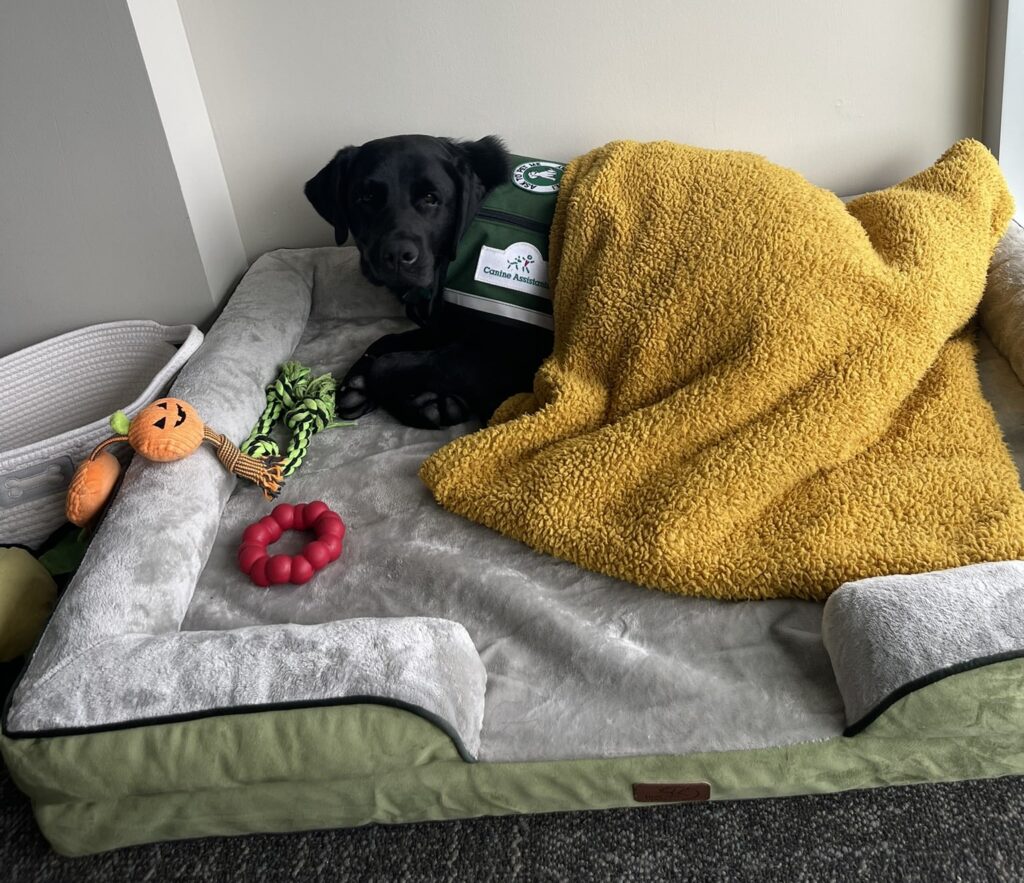
Studies have shown dogs can provide comfort, companionship, and a distraction from unpleasant thoughts. Even just petting a dog promotes the release of hormones that can elevate mood, such as serotonin, prolactin, and oxytocin. Therapy dogs have also been shown to reduce depression, anxiety, loneliness, and distress levels.
After learning about Canine Assistants from a friend, Sarah started the application process in January to receive a community service dog. While Canine Assistants has worked with many schools and hospitals, Sarah was the first applicant from a recovery center. Seeing the benefits of a new partnership, Canine Assistants graciously waived its usual fees, enabling Sarah to receive Emmy at no expense while also providing access for The Council’s clients!
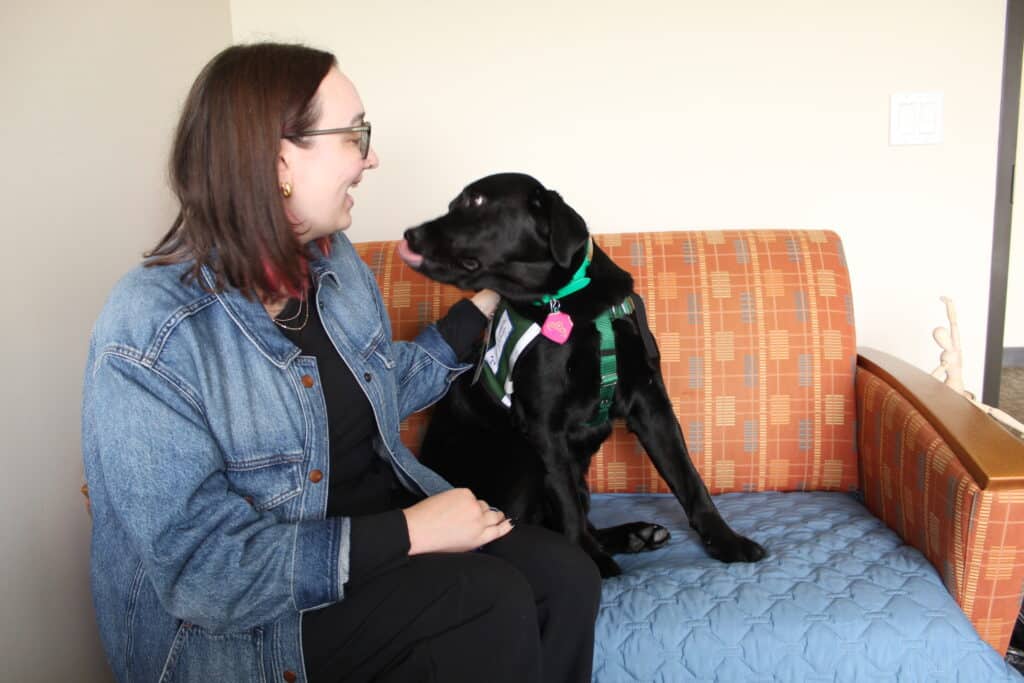
Sarah went to Georgia in July to meet Emmy and begin bonding. What makes Canine Assistants unique is its bond-based approach. Rather than focus on teaching the dogs to perform tasks on command, they educate people and dogs to develop mutually beneficial relationships. Sarah and Emmy bring this philosophy into their work here at The Council.
Sarah is a Therapist at the Center for Recovering Families within The Council, working with adults and adolescents who face challenges with addiction and negative mental health. Emmy has already been present in individual therapy and group sessions in intensive outpatient therapy; she will soon join school-based group sessions and The Council’s program for those seeking treatment through Felony Mental Health Court.
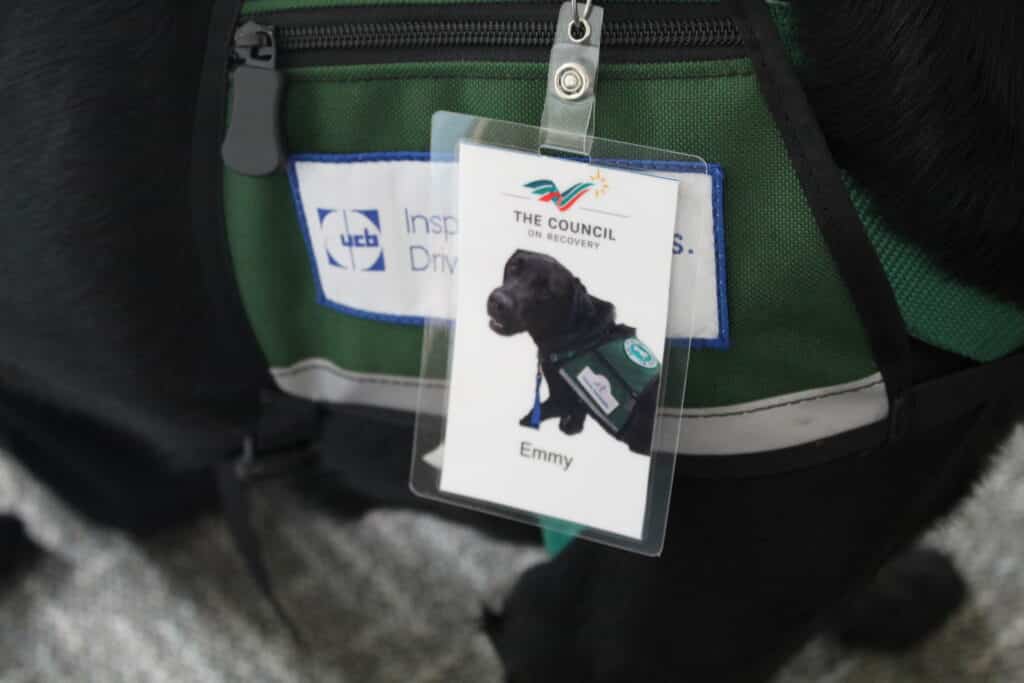
Even after just a few sessions, Emmy is recognizing participants. One adolescent stated she was “already thankful” to have Emmy in her therapy sessions, expressing how Emmy’s presence made her feel more comfortable being vulnerable.
Sarah is excited to continue exploring opportunities with Emmy at The Council to help make therapy more accessible and approachable.
When not working, Emmy loves playing with her turtle plushy, splashing in puddles, and eating peanut butter. Be sure to say hi to Emmy and Sarah when you see them on campus!
